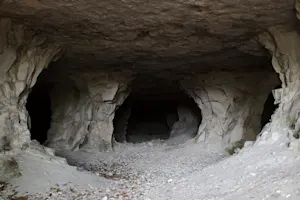What Makes This Word Tick
"Precipitate" is a word with a bit of flair and urgency—it's all about causing something to happen suddenly or unexpectedly. It has a sense of action, often with a hint of recklessness or speed. In science, it takes on a more grounded role when a solid forms from a solution. Quite a versatile little word!
If Precipitate Were a Person…
If precipitate were attending a dinner party, it would be the guest who arrives in a whirlwind and turns the conversation on its head with a compelling story. It's the friend who's not afraid to make bold (or possibly unwise) decisions on the spur of the moment.
How This Word Has Changed Over Time
Originally from the Latin "praecipitare," meaning to cast down, the word "precipitate" has maintained its dramatic roots. Over the centuries, it has expanded from describing physical acts to a metaphorical sense of hasty decisions and actions.
Old Sayings and Proverbs That Use Precipitate
While finding entire proverbs centered on "precipitate" is a challenge, it's reminiscent of the timeless wisdom in "Look before you leap". Both caution against too-hasty actions, reminding us that quick decisions can sometimes lead to trouble.
Surprising Facts About Precipitate
"Precipitate" is one word that's at home in both a chemistry lab and a dramatic literary scene. It's a bit of a chameleon, adapting its meaning to fit the context but always suggesting speed or conclusiveness.
Out and About With This Word
Listen closely, and you might hear "precipitate" at a city council meeting when someone describes a sudden turn in local policies. At a scientific conference, it dresses down to its more tangible form—perhaps discussed as a sediment forming in a test tube.
Pop Culture Moments Where Precipitate Was Used
In the world of pop culture, "precipitate" often crops up in film scripts to denote a hasty decision leading to dramatic events. Imagine a spy thriller where the protagonist's precipitate actions set off a chain of unprecedented events.
The Word in Literature
"Precipitate" is a favorite among authors who love to craft tension and urgency. It's a natural fit in mystery novels or high-paced thrillers where characters make snap judgments that drive the plot forward.
Moments in History with Precipitate
Think of the precipitate shot heard 'round the world that sparked the American Revolution. Though not literally using the word, it's a prime example of an action that set off a major chain of events.
This Word Around the World
Globally, "precipitate" might translate to a variety of concepts depending on the culture—often involving rain, as in the more literal sense, or decisions taken "on the fly." Different languages have their equivalents, each nuanced by local idioms and phrases.
Where Does It Come From?
Rooted in the Latin "praecipitatus," the word's evolution reflects its journey from a literal fall to a metaphorical rush. It's the linguistic equivalent of jumping off a cliff.
How People Misuse This Word
People sometimes mix up "precipitate" with "precipitous," though their meanings diverge. The former is more about causation, while the latter refers to steepness or rapid decline.
Words It’s Often Confused With
Precipitous: Suggests steepness or a sharp fall, not the act of making something happen abruptly.
Precipice: A steep cliff or edge, often confused due to a similar sound.
Provoke: Has a similar meaning in causing something to happen but lacks the sudden or unexpected quality of "precipitate".
Additional Synonyms and Antonyms
Synonyms for "precipitate" include "hasten," "trigger," and "expedite," while antonyms might be "halt," "delay," or "impede."
Want to Try It Out in a Sentence?
"His precipitous decision to change careers left his family and friends stunned, but he felt it was the right leap."
















